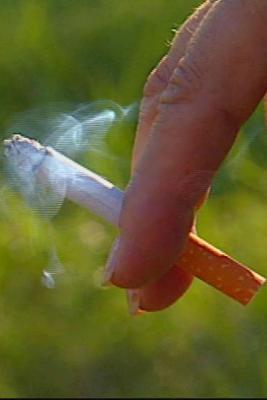
December 8, 2014 — Breathing secondhand marijuana smoke could damage heart and blood vessels as much as secondhand cigarette smoke, according to preliminary research presented at the American Heart Association’s Scientific Sessions 2014.
In the study, blood vessel function in lab rats dropped 70 percent after 30 minutes of exposure to secondhand marijuana smoke. Even when the marijuana contained no tetrahydrocannabinol (THC) — a compound in marijuana that produces intoxication — blood vessel function was still impaired.
Reduced blood vessel function may increase the chances of developing atherosclerosis and could lead to a heart attack. Atherosclerosis is the disease process that causes plaque build-up in the arteries, which narrows them and restricts blood flow.
Marijuana and tobacco smoke are chemically and physically alike, aside from their active ingredients.
The drop in blood vessel function from THC-free marijuana suggests that the compound isn’t responsible for the effect. Similarly, this study confirms that nicotine is not required for smoke to interfere with blood vessel function.
Researchers used a modified cigarette-smoking machine to expose rats to marijuana smoke, and a high-resolution ultrasound machine to measure how well the main leg artery functioned. Researchers recorded blood vessel dilation before smoke exposure and 10 minutes and 40 minutes after smoke exposure.
They also conducted separate tests with THC-free marijuana and plain air. There was no difference in blood vessel function when the rats were exposed to plain air.
In previous tobacco studies, blood vessel function tended to go back to normal within 30 minutes of exposure. However, in the marijuana study, blood vessel function did not return to normal when measured 40 minutes after exposure.
Now that marijuana is becoming increasingly legalized in the United States, its effect on others is a growing public health concern study researchers say.
Secondhand tobacco smoke causes about 34,000 premature deaths from heart disease each year in the United States among nonsmokers according to the U.S. Surgeon General’s 2014 report on the consequences of smoking.
More research is needed to determine if secondhand marijuana smoke has other similar effects to secondhand cigarette smoke in humans.
The National Institute on Drug Abuse and the Elfenworks Foundation funded the study.
Co-authors are Xiaoyin Wang, M.D.; Ronak Derakhshandeh, M.S.; Shilpa Narayan, B.S.; Emmy Luu, B.S.; Stephenie Le, B.A.; Olivia Danforth, B.S.; Hilda Rodriguez; Richard Sievers, B.S.; Suzaynn Schick, Ph.D. and Stanton Glantz,
For more information: www.heart.org


 January 05, 2026
January 05, 2026 









